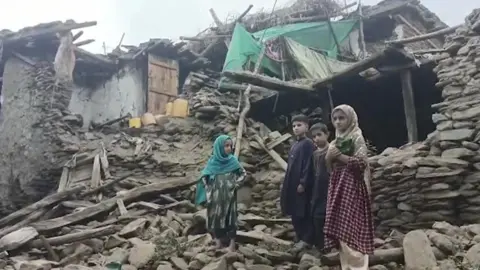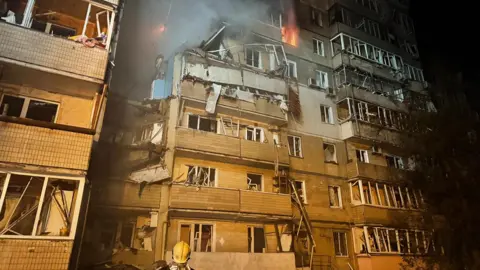A 6.0 magnitude earthquake has struck Afghanistan's mountainous eastern region, with authorities saying hundreds of people have been killed.
The quake hit at 23:47 local time on Sunday (19:17 GMT) and its epicentre was 27km (17 miles) away from Jalalabad, the country's fifth-largest city, in eastern Nangarhar province.
It was shallow - only 8km deep - and was felt 140km away in the capital, Kabul, as well as in neighbouring Pakistan. Hundreds of people are thought to have died.
The initial quake was followed by a number of large aftershocks, which are thought to have caused further deaths.
Details are still emerging and it could be some time before the extent of the damage and number of deaths is known.
What we know so far
Initial reports indicate significant casualties and widespread damage across parts of Nangarhar and Kunar provinces. These mountainous areas are extremely challenging to reach even in the best of times, which is hampering rescue and relief operations.
More than 600 people are feared dead, the Taliban's interior ministry has said, but warns there is still no clear death toll. The road leading to the epicentre has been blocked due to landslides, prompting the use of helicopters for rescue efforts.
Multiple sources from the government indicate that dozens of houses are buried under rubble, and aid from international organizations has been requested. Access by road to the worst-hit areas is still impeded.
The earthquake comes in the wake of flash flooding that left at least five dead over the weekend, causing landslides and damage to infrastructure.
Why don't we know more?
The challenging terrain and limited communications are hampering accurate assessments and relief efforts. The Taliban's return to power has also seen a decline in international media presence, further complicating the situation.
Can Afghanistan cope?
Afghanistan was already facing an economic collapse with over 23 million people in need of humanitarian assistance. Aid has been severely affected by international sanctions, and the healthcare system, which relied heavily on foreign funding, is in ruins.
Why are earthquakes particularly damaging in Afghanistan?
Afghanistan is located on major fault lines, making it prone to earthquakes. The structures in the region are often not designed to withstand such quakes, resulting in catastrophic damage.




















